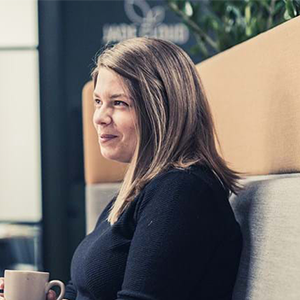
3 Ways Your Ideas Can Improve with Elastic Thinking
At the beginning of this month I attended a lunch time presentation at the RSA (Royal Society for the encouragement of Arts, Manufactures and Commerce) on the ‘Power of Elastic Thinking’ that left a lasting impression on me. Given by academic Leonard Mlodinow, who has written a book on the subject, the talk was designed to open our minds to a new ‘elastic’ way of approaching problems.
Mlodinow’s premise is that in a time of exponential societal change, elastic thinking becomes more vital than ever if we want to be able to deal with the resulting craziness that surrounds us.
To explain this, he walked us through two different forms of thinking – analytical thinking vs. elastic thinking.
Analytical is the type of problem-solving taught in schools – you take an issue then use logic to work your way through it. In comparison, elastic thinking doesn’t follow steps to solve an issue, it challenges and throws out the steps in order to take a fresh approach. It reframes questions, interrogates assumptions and unlocks your imagination to generate ideas.
With me so far?
The way Mlodinow explained it, your mind is an ideas machine – constantly generating new thoughts deep down in its depths, however these rarely make it out of your unconscious and into your conscious. While not necessarily such a terrible thing – if we were bombarded with all the ideas that crossed our mind we’d drown in them – the filters that keep them from getting through to your conscious also keep out some of our more unusual thinking. And sometimes such thinking can be brilliant.
Harnessing the power of elastic thinking, therefore, becomes about learning to relax these filters and let the ideas percolate through.
All sounds great, you say – but how do I go about achieving such a thing? Well, here are three ways to encourage more elastic thinking in your day-to-day:
1. Dwell on your mistakes
It’s a situation we all know well – no sooner have you completed a new business pitch, given a client presentation or finished a sell-in, than your brain has already moved on to its next task. While it is understandable not to want to spend time going over what could have gone better, putting aside a little time to trace back any missteps can prevent a lot of future pain. After all, if you remember your mistakes, you might question how you think about things next time round.
2. Slow down to speed up
When it comes to cracking your latest campaign inspiration or finding that perfect tactic to execute on it, trying to solve something in a hurry could preclude your mind from being adventurous and going down paths that might not work. Guided by our prevailing, rational mindsets, we’d far rather go down the more conventional path than risk wasting our time on one that looks less promising. Granted, when a deadline is looming it is easier said than done, but if you can find a way to ease off the time pressure – even slightly – your brain will feel much freer to wander. It is only by venturing down paths that might not work that you will discover a new direction that does.
3. Get the timing right
Just as sensory information and your physical environment (i.e. high ceilings) will affect your ability to think elastically, time of day – or more specifically how you feel at a given time of day – can have a big impact. Interestingly, we’re actually more likely to be able to think elastically when our brains are tired - allowing the filters to relax enough to let our weirder ideas through. This is one of the reasons why morning people can have their best ideas at night, and vice versa. You can also force your brain into this situation by putting it through a highly analytical task to tire it before you try idea generation.
So there you go – a little lunchtime learning from me to you. Why not try out a more elastic approach next time you’re challenged to come up with a new idea!
The latest blogs from WE
Decoding Gen Alpha: A Primer on the Next Gen of Consumers
Why Gen Alpha Will Fuel Spending This Season
Why Reputation Is a Business Driver in Healthcare


